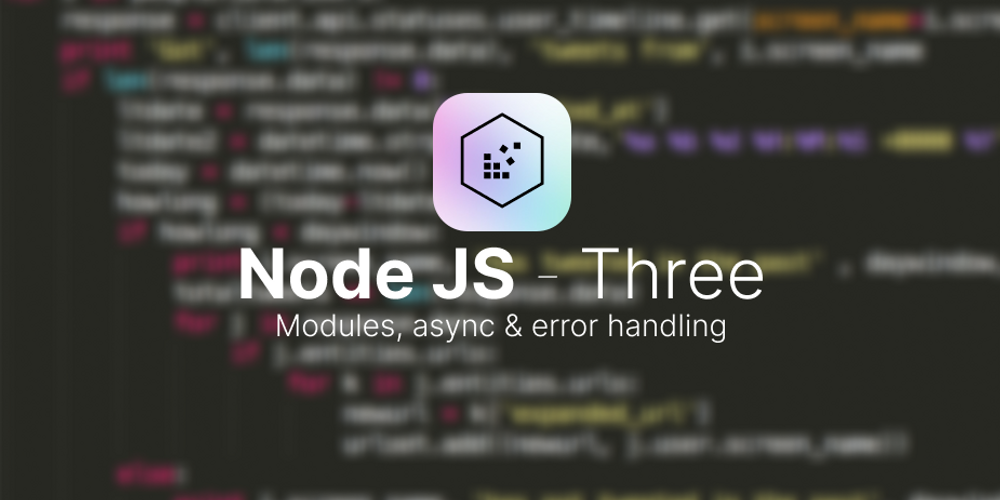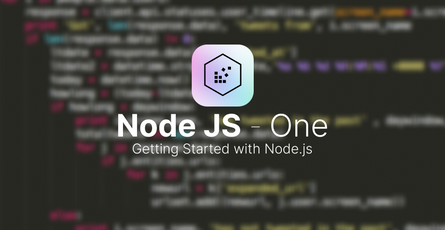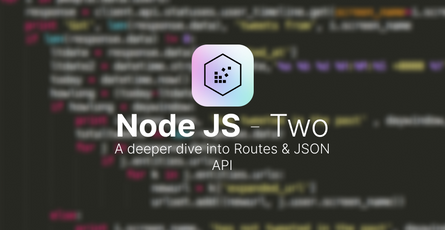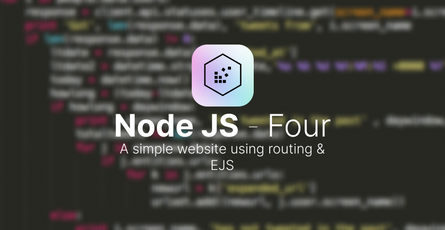Modules, async & error handling
-
 meFqulted
meFqulted
- January 13, 2024

Let’s explore more advanced features of Node.js, including working with modules, asynchronous programming with callbacks and Promises, and handling errors.
1. Modules in Node.js
Node.js uses a module system to organize code into reusable files. Create a simple module to handle mathematical operations:
math.js
exports.add = (a, b) => a + b;
exports.subtract = (a, b) => a - b;
exports.multiply = (a, b) => a * b;
exports.divide = (a, b) => (b !== 0 ? a / b : 'Cannot divide by zero');Now, use this module in your main application file (app.js):
app.js
const math = require('./math');
console.log(math.add(5, 3)); // Output: 8
console.log(math.subtract(10, 4)); // Output: 6
console.log(math.multiply(2, 6)); // Output: 12
console.log(math.divide(8, 2)); // Output: 4
console.log(math.divide(5, 0)); // Output: Cannot divide by zero2. Asynchronous Programming with Callbacks
Node.js is designed to be non-blocking and asynchronous. Here’s an example using callbacks for asynchronous file reading:
const fs = require('fs');
fs.readFile('my-file.txt', 'utf8', (err, data) => {
if (err) {
console.error(err);
return;
}
console.log(data);
});
console.log('Reading file asynchronously...');3. Asynchronous Programming with Promises
Promises provide a cleaner way to handle asynchronous operations. Let’s modify the previous example using Promises:
const fs = require('fs').promises;
fs.readFile('my-file.txt', 'utf8')
.then((data) => {
console.log(data);
})
.catch((err) => {
console.error(err);
});
console.log('Reading file asynchronously with Promises...');4. Handling Errors
Node.js applications often deal with errors. Here’s an example of error handling using the try-catch block:
const fs = require('fs').promises;
async function readFileAsync() {
try {
const data = await fs.readFile('my-file.txt', 'utf8');
console.log(data);
} catch (err) {
console.error(err);
}
}
readFileAsync();
console.log('Reading file asynchronously with async/await...');5. Events and EventEmitter
Node.js has an ‘events’ module that allows you to create custom events. Here’s a simple example:
const EventEmitter = require('events');
class MyEmitter extends EventEmitter {}
const myEmitter = new MyEmitter();
myEmitter.on('customEvent', (arg) => {
console.log(`Custom event triggered with argument: ${arg}`);
});
myEmitter.emit('customEvent', 'Hello, EventEmitter!');These are just a few advanced concepts in Node.js. As you continue exploring, you’ll encounter more features and patterns that make Node.js a versatile platform for building scalable and efficient applications. Happy coding!


